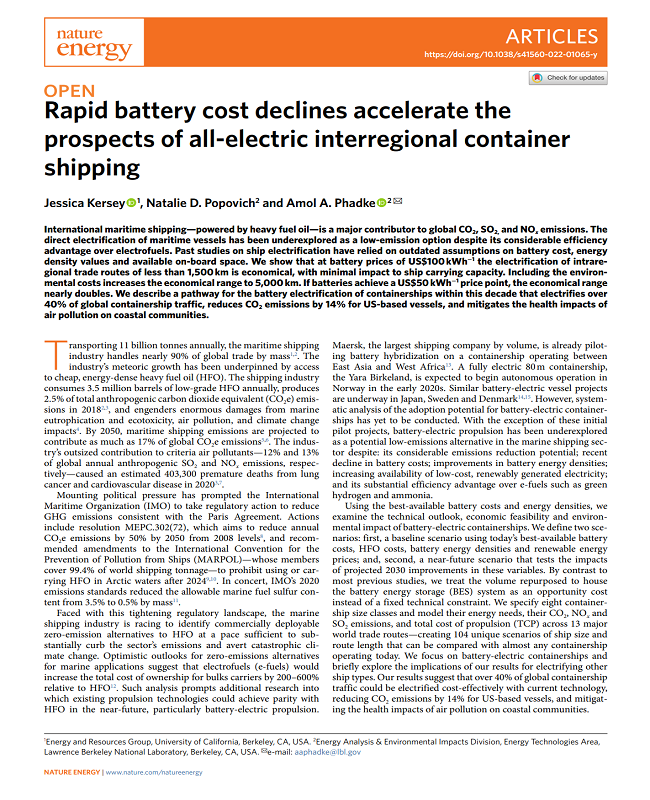International maritime shipping—powered by heavy fuel oil—is a major contributor to global CO2, SO2, and NOx emissions. The direct electrification of maritime vessels has been underexplored as a low-emission option despite its considerable efficiency advantage over electrofuels. Past studies on ship electrification have relied on outdated assumptions on battery cost, energy density values and available on-board space.
The researchers of this study show that at battery prices of US$100 kWh−1 the electrification of intraregional trade routes of less than 1,500 km is economical, with minimal impact to ship carrying capacity. Including the environmental costs increases the economical range to 5,000 km. If batteries achieve a US$50 kWh−1 price point, the economical range nearly doubles. The researchers describe a pathway for the battery electrification of containerships within this decade that electrifies over 40% of global containership traffic, reduces CO2 emissions by 14% for US-based vessels, and mitigates the health impacts of air pollution on coastal communities.
More About this Resource
Publisher: University of California Berkeley
Date: July 18, 2022
Type: Research Reports
Tags: Batteries, Costs, Economic Benefits, Shore Power
Countries: International
States: None
